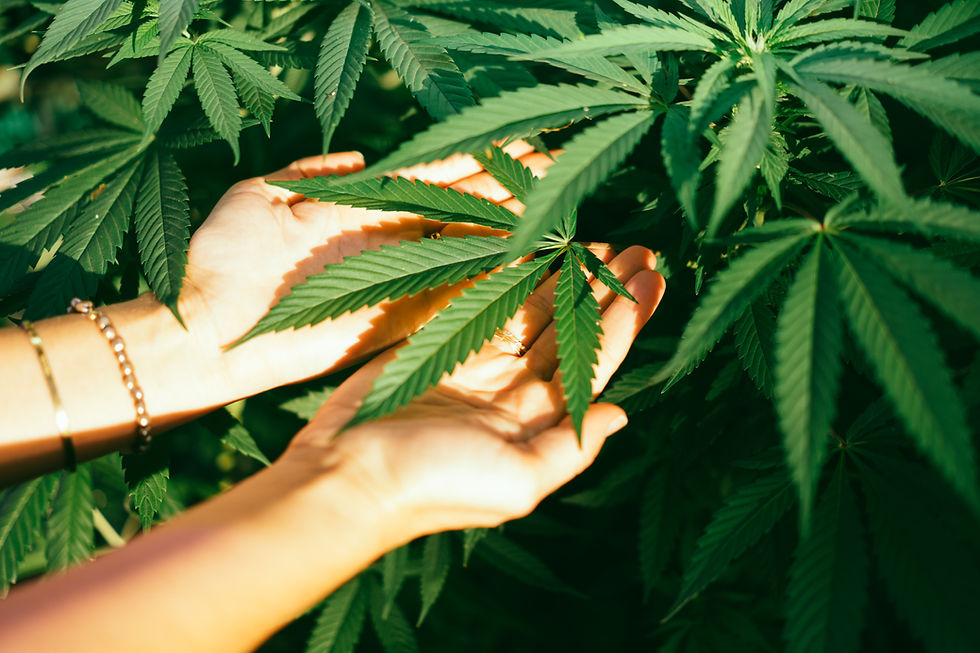Many patients with fibromyalgia report benefit from cannabis (medical marijuana), but until recently we did not have the studies to really back that up. We now have some real science and in this article I will break down the new research that has really expanded our knowledge. Until 2019 there had been only one small study in which subjects with fibromyalgia did report reduced pain and stiffness 2 hours after cannabis usage.

But in 2019 a Dutch study looked for pain-blocking effects of inhaled pharmaceutical-grade cannabis in 20 chronic pain patients with fibromyalgia. After a single vapor inhalation they measured how much pressure could be tolerated before it caused pain and they asked patients to rate their pain levels. They tested 3 different cannabis varieties – a high THC/ low CBD strain, an approximately equal CBD to THD strain, and one with high CBD/low THC- against a placebo. Cannabis varieties containing THC did show an analgesic effect by increasing the level of pressure it took to cause pain. The high CBD/low THC variety did not affect the pain experienced from pressure.
The first long term study on herbal cannabis for fibromyalgia comes to us from Israel, which should be no surprise as this country basically created the field of cannabis science when Dr. Raphael Mechoulam and colleagues isolated the THC molecule in 1964. This study followed 367 fibromyalgia patients, mostly middle-aged women, for a 6-month period after starting cannabis in a specialized medical cannabis clinic. Just over half of the subjects had no previous experience with cannabis. 14 different strains of cannabis were available, on average each patient tried 3 different strains. 56.4% of the strains tried were THC rich, 21.7% were CBD rich.
A certified nurse educated the patients on the use of medical cannabis, gave instructions on route of administration (smoking versus ingestion), delivery methods (drops, flowers, capsules or cigarettes) and possible adverse effects. They also provided explanation on regulatory issues, and advised on selecting the cannabis strain (out of 14 strains available) and treatment dosage and titration schedule. In addition the cannabis provider operated a 24/7 call center to address any patient concerns. The researchers assessed patients with questionnaires multiple times over the 6 months and had patients rate symptoms and report any side effects. There were relatively minor adverse effects including dizziness, dry mouth and nausea.
The results of this study were impressive:
Overall treatment success was achieved in 81% of patients (the proportion of patients reporting at least moderate overall improvement in their condition).
Overall pain intensity reduced from a median of 9/10 to 5/10.
Around 20% of patients taking opioids or benzodiazepine were able to stop or reduce thanks to medical cannabis.
There were a few drawbacks to this study. It was not blinded so there is a risk of a placebo effect, and we can't draw any conclusions about the most effective strain or ratios since it was not a randomized controlled trial. However it was a very “real world” study, as most patients will try several different strains and titrate their dosage according to individual needs, rather than using a one size fits all approach. The researchers concluded “ the present observational study innovates by showing that medical cannabis may be an effective and safe treatment for fibromyalgia in a large cohort with 6 months followup”.
One thing that became really obvious to me upon reading this article is that medical cannabis usage in Israel is really, um ... medical. Simply by ensuring that each person granted authorization for medical cannabis usage receives some structured guidance by a nurse with training in cannabis is so impressive. This is light years ahead of our current get-medical-advice-from-random-budtender approach, which to me has always seemed a little like asking the cashier at Walgreens for guidance on your blood pressure medications. Of course, there are some very knowledgeable staff at many dispensaries. But to truly medicalize cannabis in the US would require some sort of mandatory training for dispensary staff, or maybe even cannabis-specialized pharmacists at medical dispensaries. Unfortunately that doesn’t seem likely anytime soon, so in the meantime, patients need to educate themselves as much as possible.

